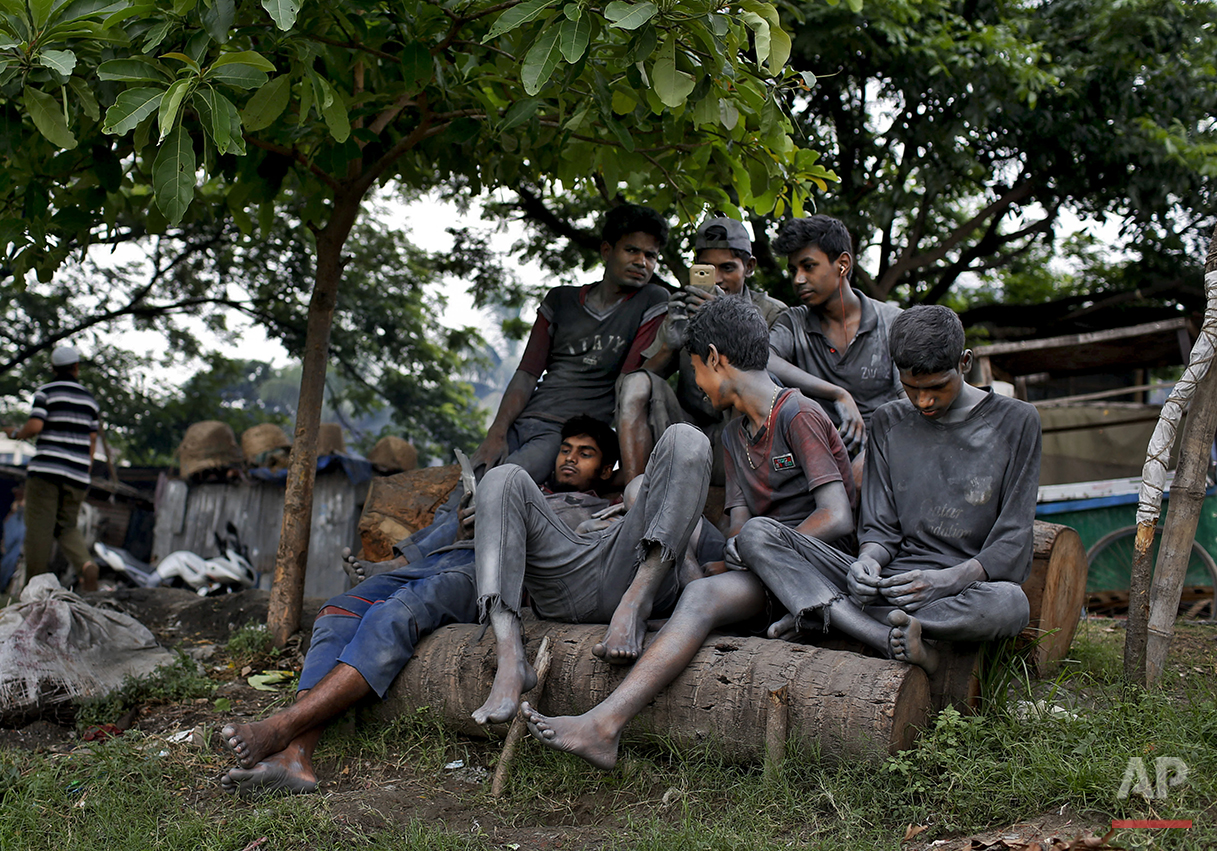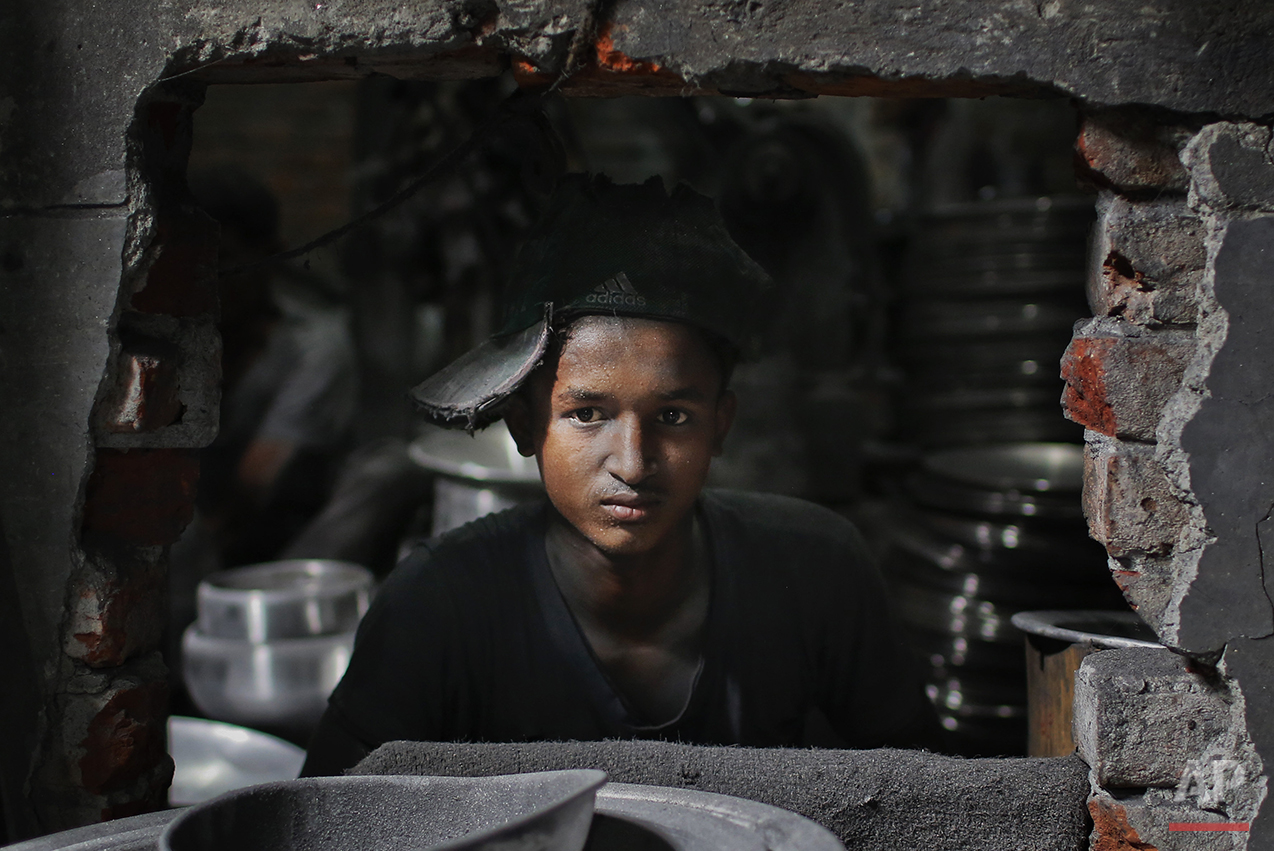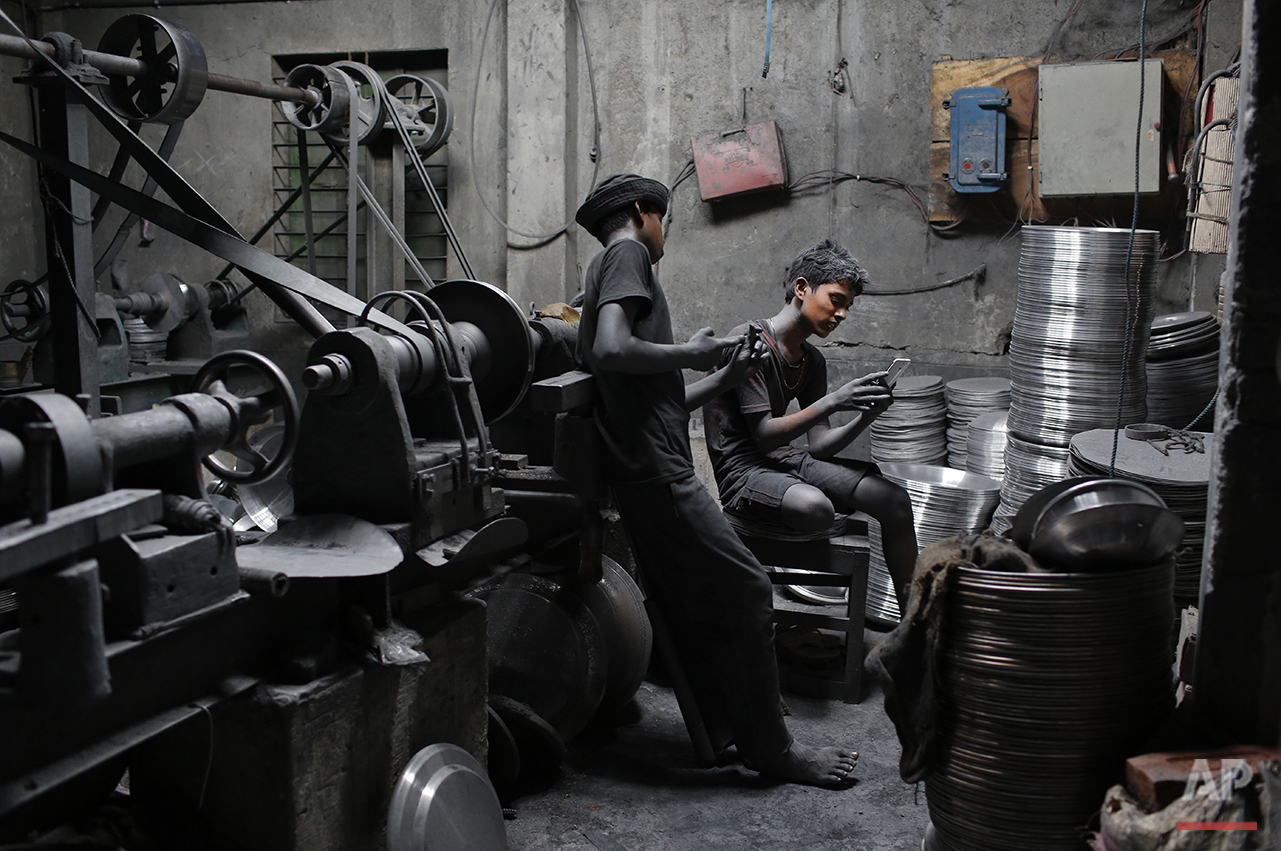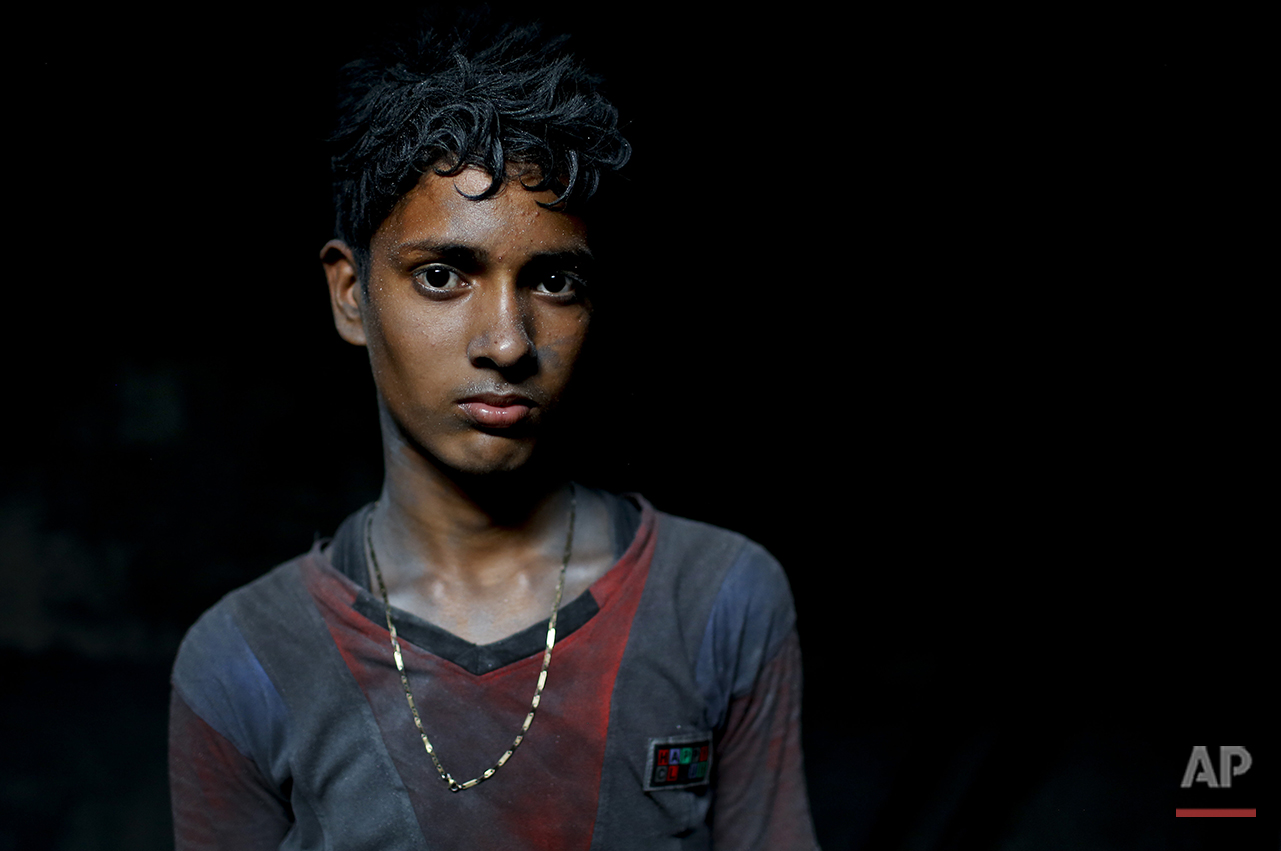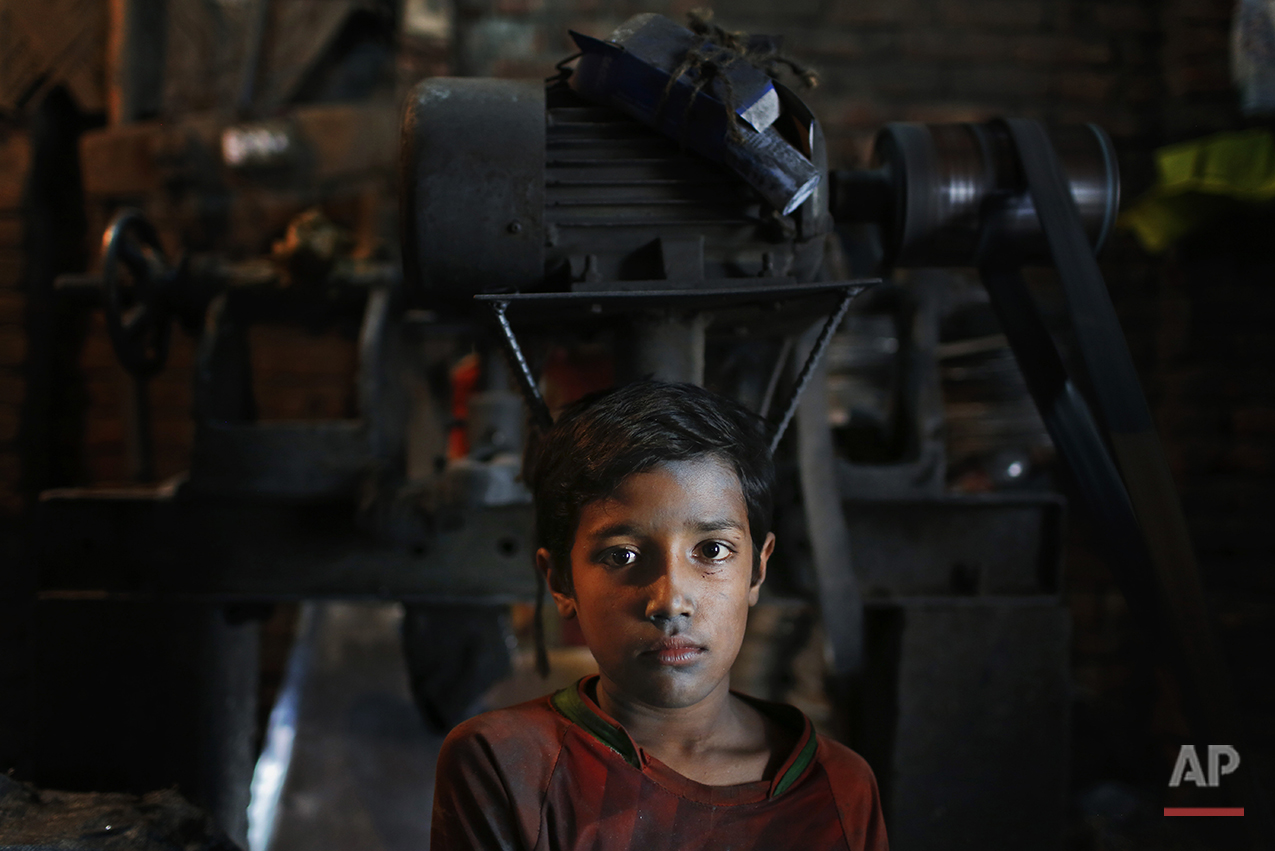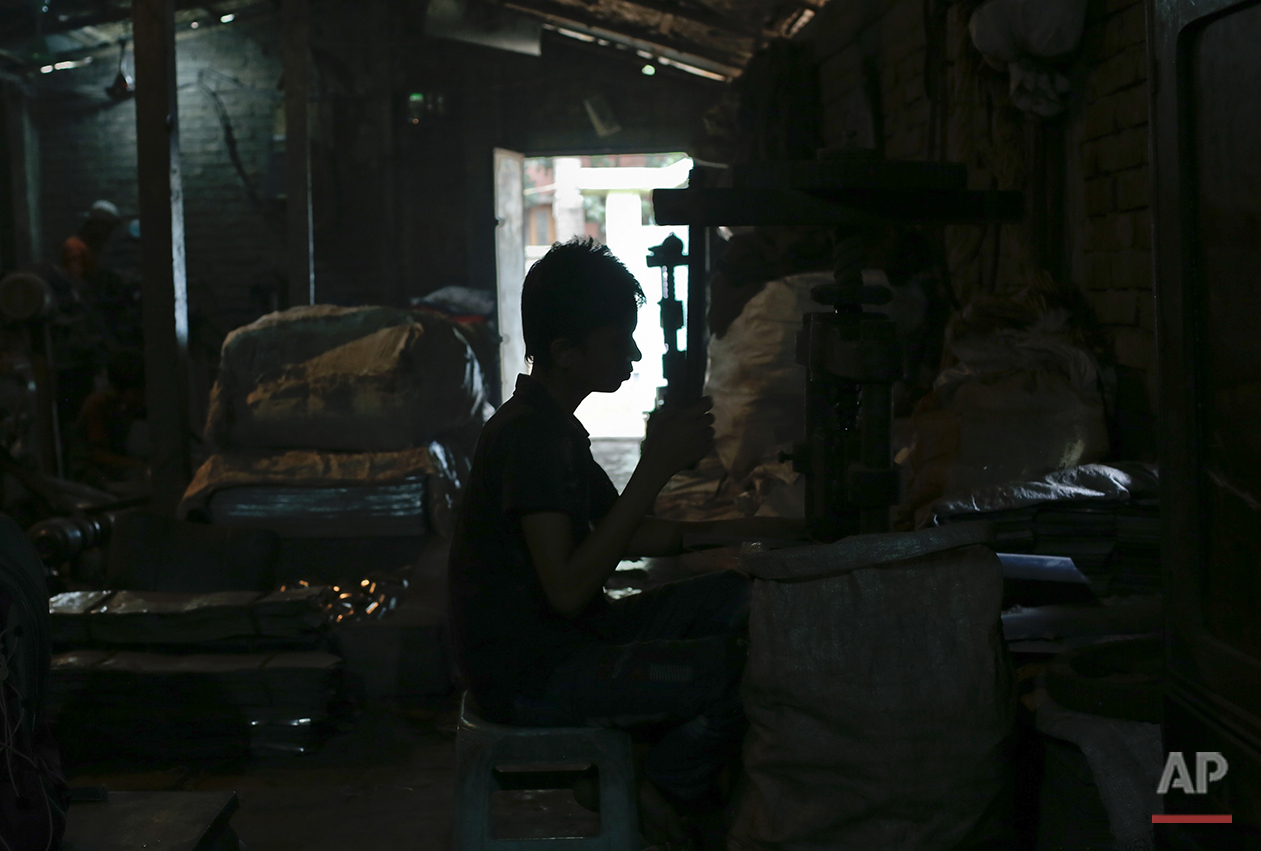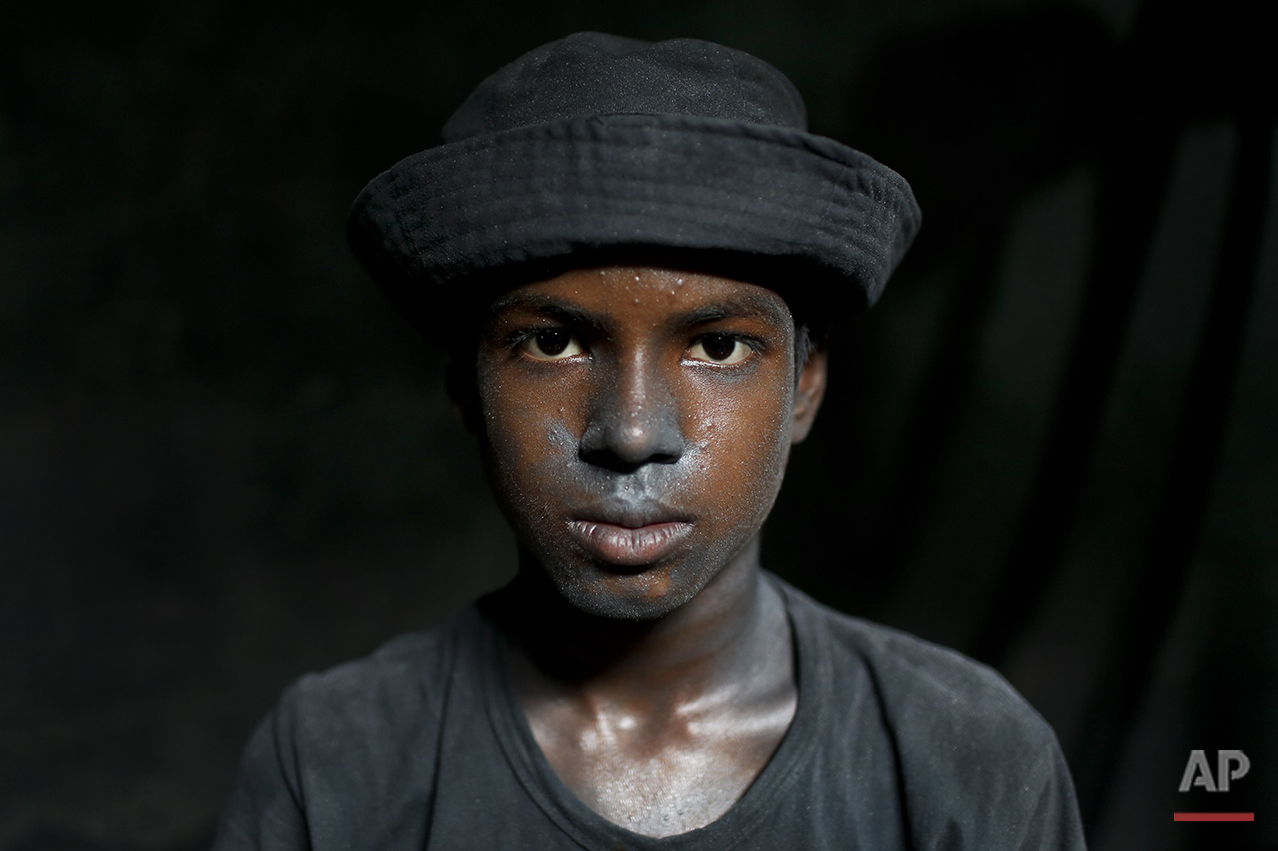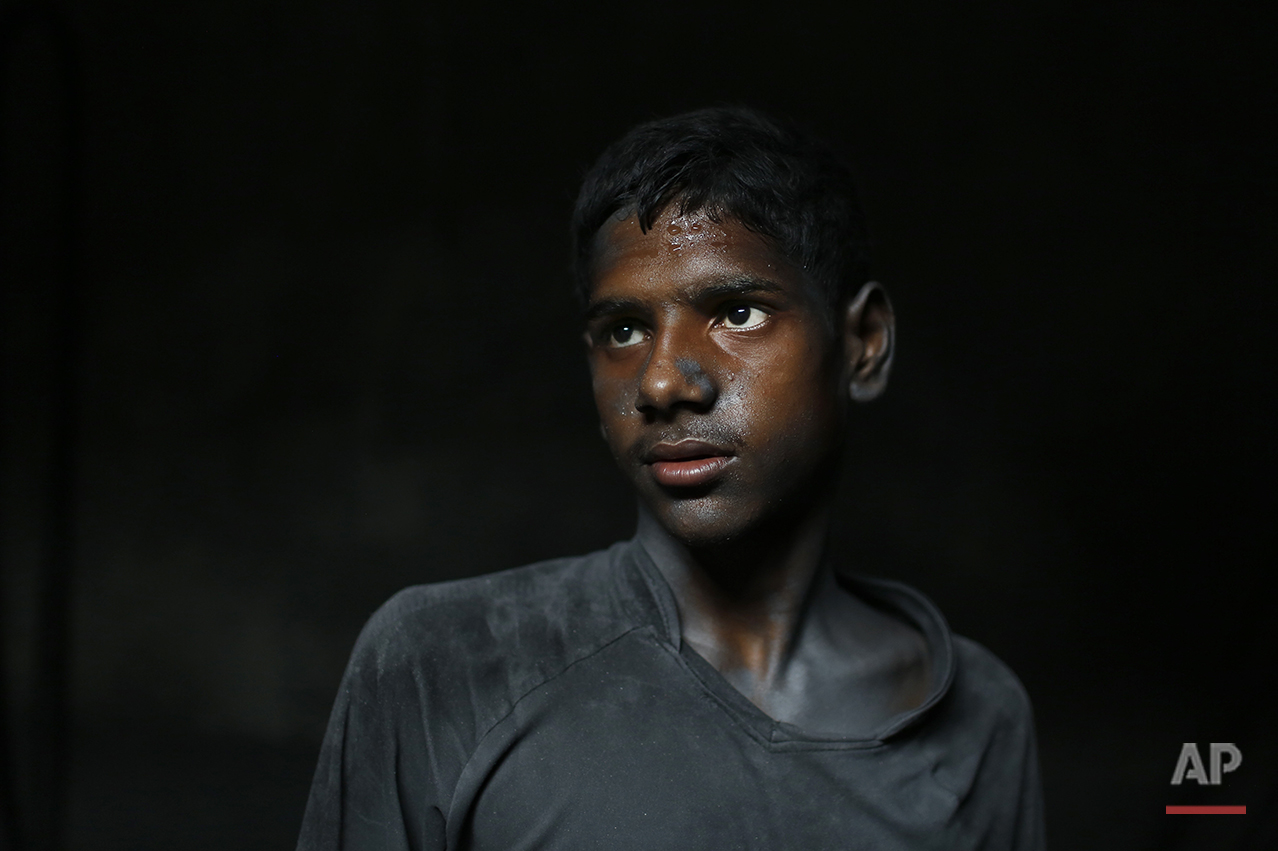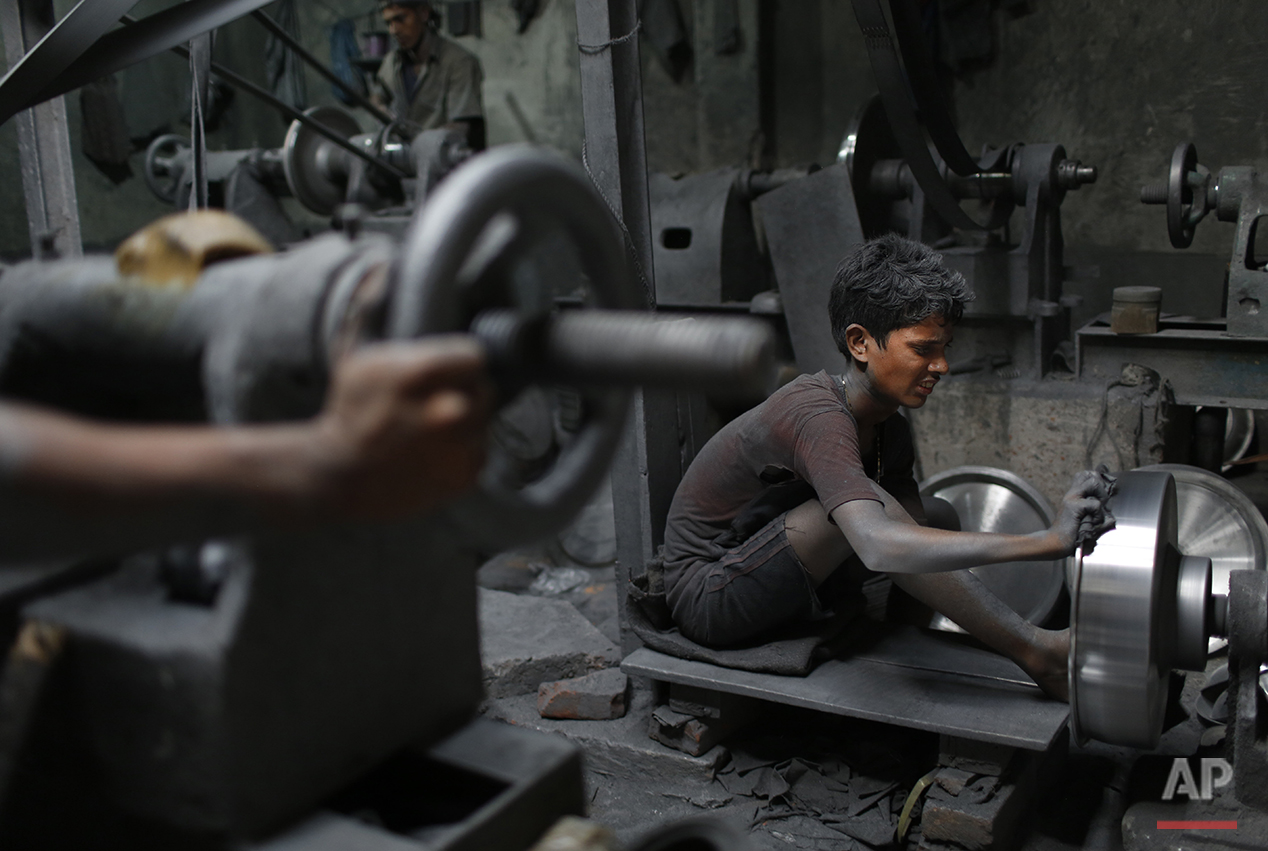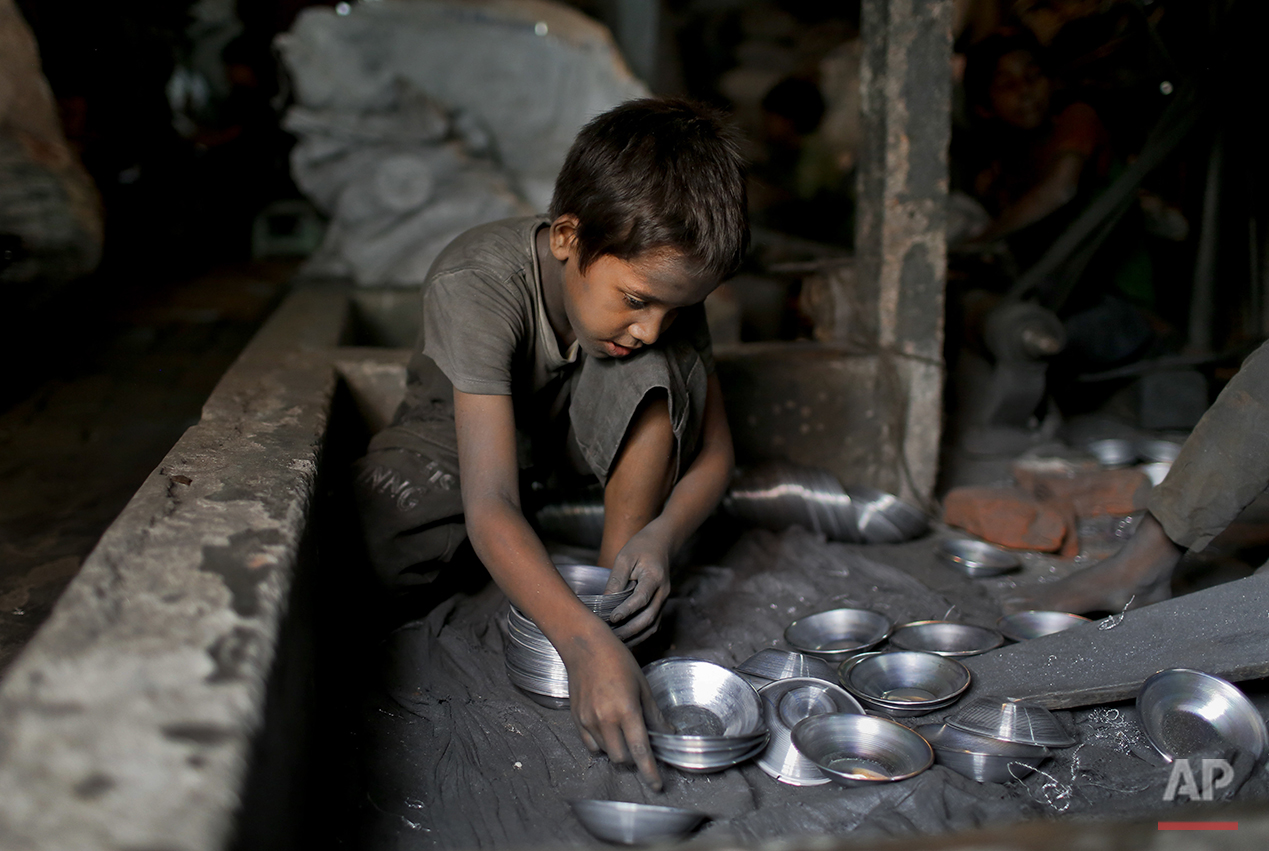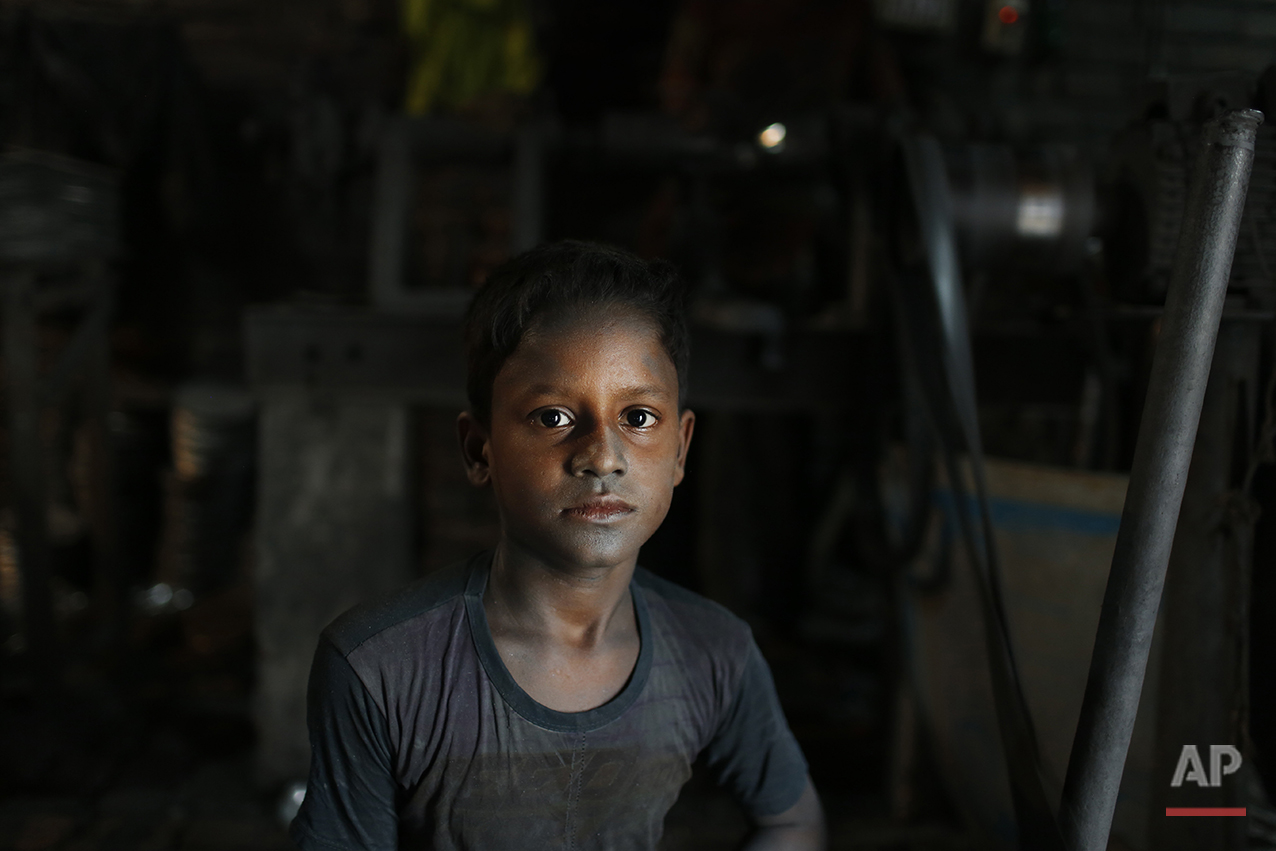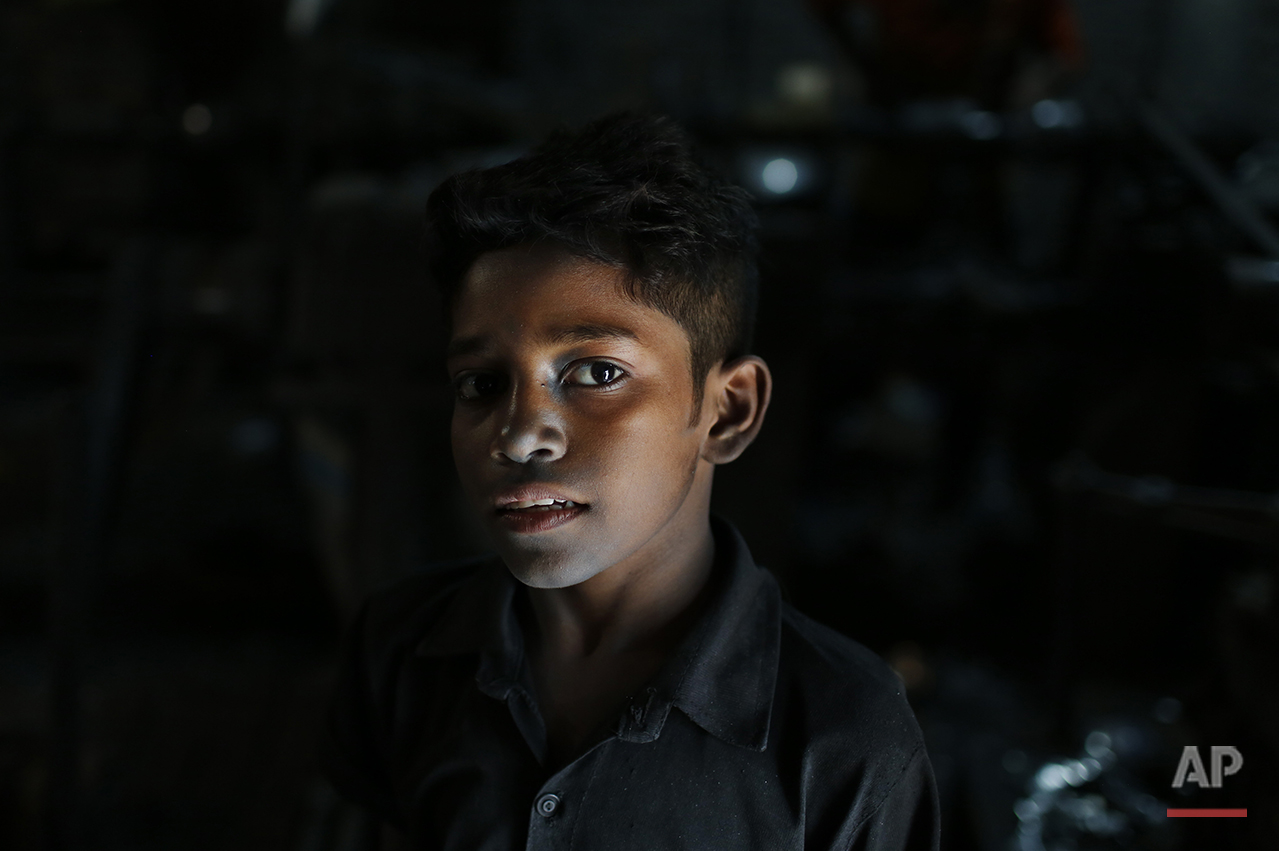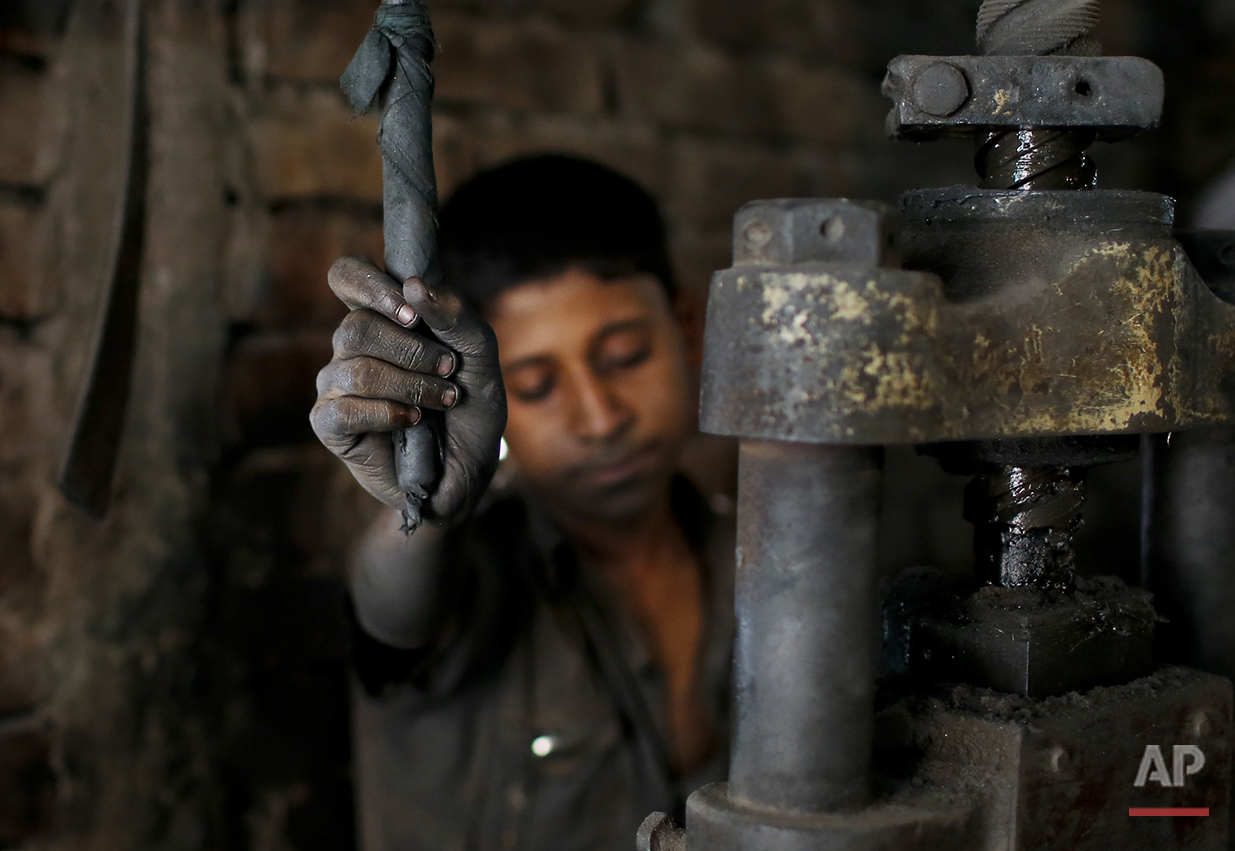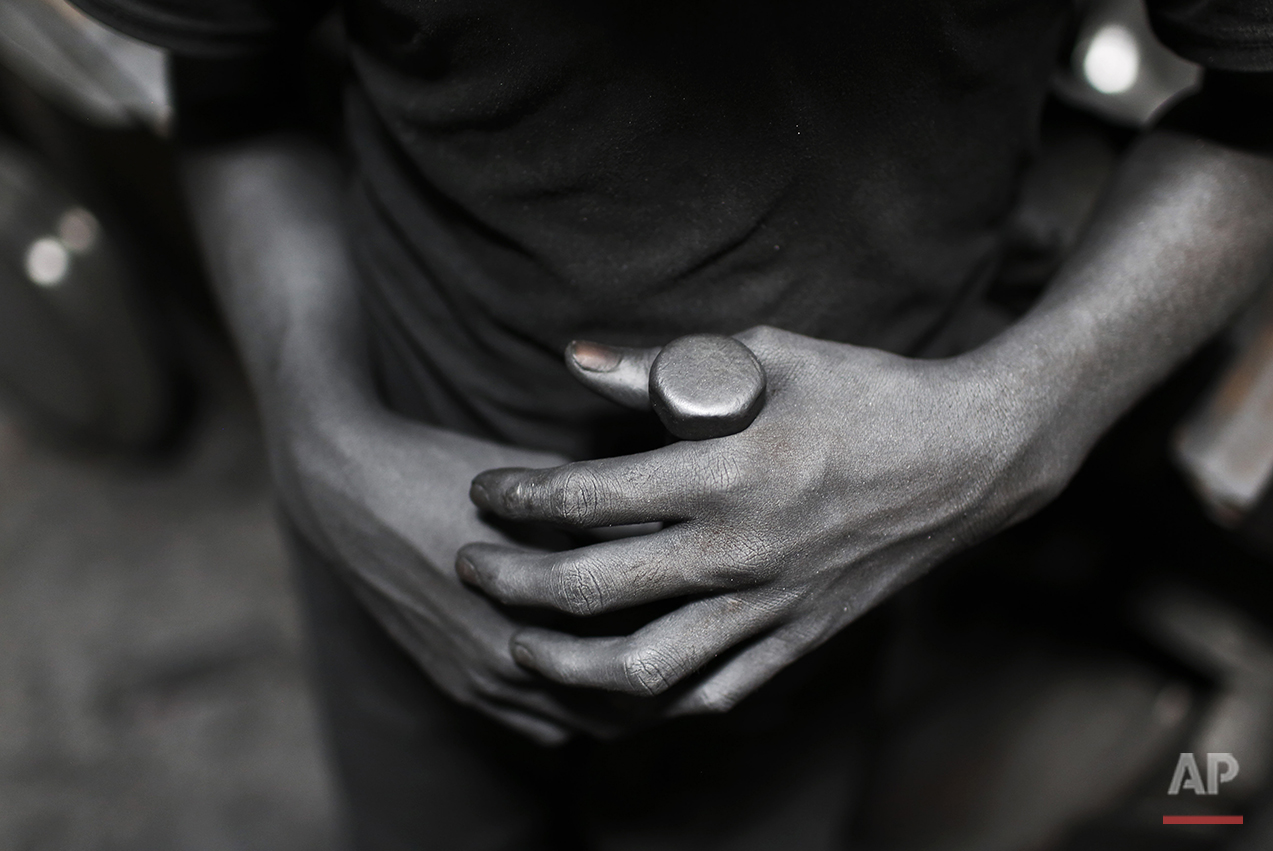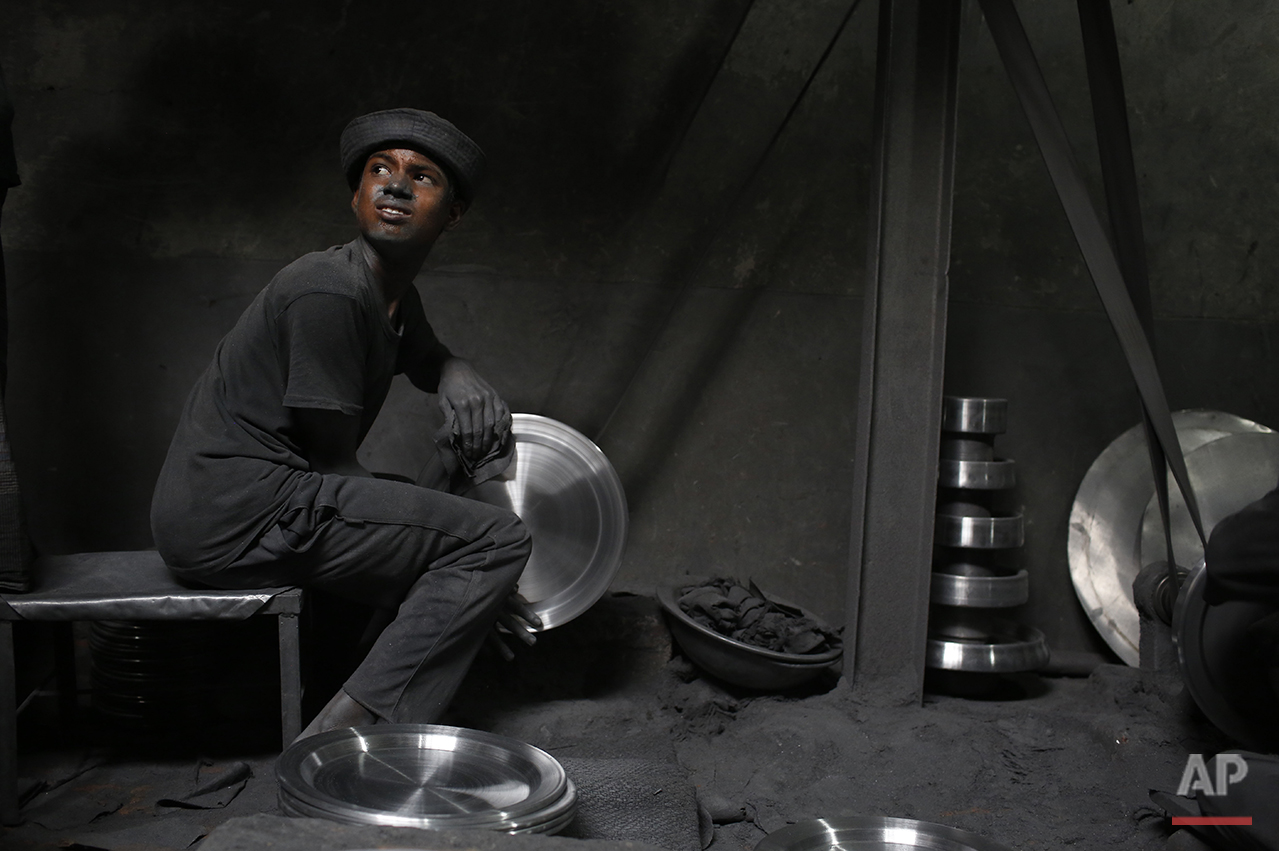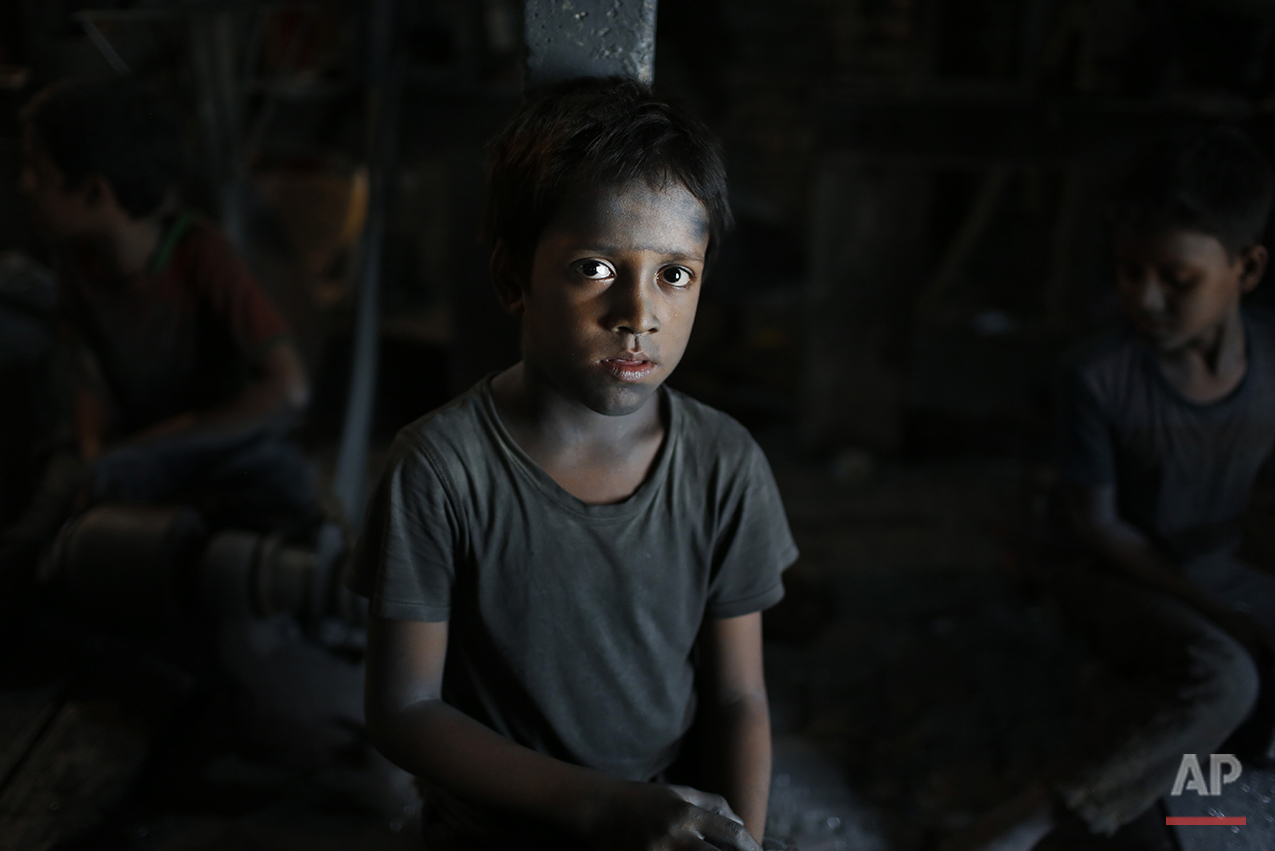Poor Bangladesh kids work to eat and help families

Eleven-year-old Al Amin and his friends work 10 hours a day, six days a week, sawing aluminum sheets and pounding them into bowls and plates.
They need the few dollars a day they make to keep eating and support their families in the slums of Bangladesh's jam-packed capital, Dhaka.
See these photos on APImages.com
"I love to study in school," Al Amin said, covered in the fine metal dust he has been breathing while working without protective gear in one of the dozens of aluminum factories clustered in the city's Kamrangirchar neighborhood. "But my father died, and I had no choice. I must work."
Al Amin's story is hardly unique. Some 4.7 million children below the country's legal working age of 14 spend their days as restaurant servers, ticket collectors on public buses, construction workers, or laborers in garment factories and other hazardous industries, according to UNICEF.
Many are forced to work to send money to their families who are struggling to maintain farms outside the city. Some must work to help pay medical bills for an ailing parent. And some just need a job to get by in the slums of Dhaka, after fleeing flooded villages in the low-lying delta nation.
Worldwide, an estimated 168 million children aged 5-17 are working in dozens of countries, according to the International Labor Organization.
The U.N. agency says many of those children, while working in informal sectors out of the sight of authorities, produce materials and products that are ultimately sold on the world market.
"Child labor has no place in well-functioning and well-regulated markets, or in any supply chain," ILO Director-General Guy Ryder said in a statement Sunday, the U.N.'s World Day against Child Labor.
Largely a product of persistent poverty worldwide, child labor came into sharp focus two years ago when the Nobel Peace Prize was awarded to children's rights activists Malala Yousef from Pakistan and Kailash Satyarthi of India.
Text from the AP news story, AP PHOTOS: Poor Bangladesh kids work to eat, help families, by A.M. Ahad.
Follow A.M. Ahad | Twitter | Instagram
Follow AP photographers on Twitter: http://twitter.com/AP/lists/ap-photographers
Spotlight is the blog of AP Images, the world’s largest collection of historical and contemporary photos. AP Images provides instant access to AP’s iconic photos and adds new content every minute of every day from every corner of the world, making it an essential source of photos and graphics for professional image buyers and commercial customers. Whether your needs are for editorial, commercial, or personal use, AP Images has the content and the expert sales team to fulfill your image requirements. Visit apimages.com to learn more.
Written content on this site is not created by the editorial department of AP, unless otherwise noted.
AP Images on Twitter | AP Images on Facebook | AP Images on Instagram

